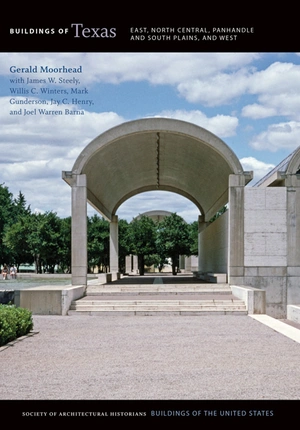
Evan Jones and H. A. Orlopp of Wichita Falls designed this substantial, two-story, red brick house for Wichita Falls businessman Frank Kell. The low-pitched roofs with broad eaves supported on scrolled brackets suggest Prairie Style influence. The house’s most distinguishing features are the tall central portico supported on two pairs of Doric columns and the one-story gallery that runs behind the portico and continues along each side to form rounded porches on smaller Doric columns. The site was a bluff that overlooked the expanding city that Kell and Kemp were deeply involved in developing. The Kell family occupied the house until 1980, when it was purchased by the Wichita County Heritage Society and opened as a museum in 1981. Original furnishings and decorative arts remain in the house. Gardens are being reconstructed as planted by Kell’s daughter Willie May, the last of the family to reside in the house.








